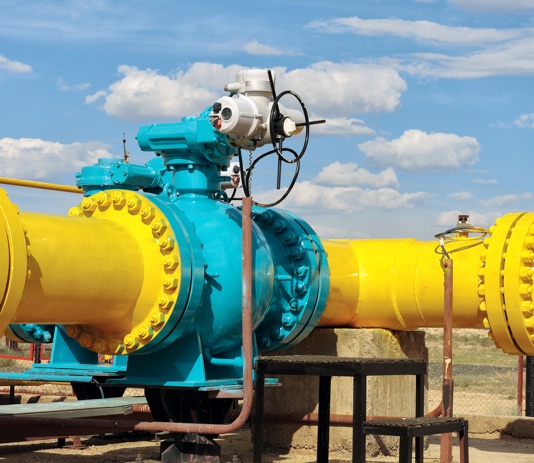by Silvia Boltuc * –
On December 6, 2023, Ashgabat hosted the seventh session of the Turkmen-Turkish Intergovernmental Commission on Economic Cooperation, which was attended by senior officials from key ministries and departments of Turkmenistan, together with a representative delegation led by Turkish Vice President Cevdet Yilmaz.
Underlining how the results of this meeting will further strengthen the international collaboration between Turkey and Turkmenistan, the head of the Turkish delegation highlighted the global dimension of the partnership which covers all sectors. Specific measures aimed at expanding interactions between promising sectors were also outlined in the meeting.
The issues relating to Turkmen gas shipments to Turkey had already been discussed recently during a bilateral meeting in Ankara between the presidents of the two countries, Serdar Berdimuhamedow and Recep Tayyip Erdogan. Specifically, in that context the importance of gas transport to Turkey through the Caspian Sea was highlighted, with particular emphasis on the role played by Azerbaijan.
During the meeting in early December, however, Turkmenistan affirmed its interest in increasing natural gas exports to Turkey using the Korpedzhe-Kordkuy gas pipeline (the pipeline goes from the Korpedzhe and Gamyshlydzha fields in Turkmenistan to the Kordkuy terminal in Iran ). In this context, both Turkmenistan and Turkey have expressed their readiness to initiate negotiations at agency and corporate management levels in the near future which will also involve Iran.
This proposal is in line with the existing gas trading agreement between Tehran, Ashgabat and Baku, established in November 2021, which provides for Iran to supply 1.5-2 billion cubic meters of Turkmen gas to Azerbaijan in change of a similar volume.
The director general of the Iranian National Gas Company (NIGC), Majid Chegeni, reported an increase in gas volumes received from Turkmenistan, reaching 8 million cubic meters per day, with a test shipment of 10 million cubic meters carried out in August 2023. Furthermore, the Iranian ambassador to Turkmenistan, Golam Abbas Khales, expressed the potential to increase supplies under the exchange agreement from Turkmenistan to 20 million cubic meters per day, confirming Tehran’s interest and Ashgabat to strengthen their partnership in the gas sector. From a geopolitical perspective, this potential cooperation presents a strategic opportunity that extends beyond bilateral relations. Involving multiple regional actors can alter energy dynamics within the Caspian region and towards Turkey.
Iran’s policies reflect its strategic approach to strengthening alliances with neighboring countries. Aiming to foster closer ties and partnerships, particularly in the Middle East and Central Asia, Iran seeks to strengthen regional stability while asserting its geopolitical role. At the same time, its avowedly Eastward-looking policy emphasizes a deliberate pivot towards dialogue with Asian nations, particularly China, Russia and the Central Asian republics, in the economic, political and energy spheres. This approach aims to diversify Iran’s international relations, leveraging the potential economic benefits and geopolitical support of Eastern powers, creating a more balanced and versatile foreign policy landscape.
Turkmenistan and Iran share a spectrum of collaborative efforts in various sectors. An important initiative involves the development of a rail corridor connecting Kazakhstan, Turkmenistan and Iran, substantially strengthening regional connectivity.
In the case of the current gas agreement with Turkey, this certainly marks a change of tone between two powers that are often at odds on an ideological and pragmatic level. Although Ankara and Tehran cooperate within the Economic Cooperation Organization (ECO), in fact, the sanctions imposed by the West are the only obstacle that prevents the Islamic Republic from competing with Turkey in the context of energy corridors. Ankara, which boasts an undoubtedly strategic position and a membership in NATO which offers it many advantages, has always attempted to keep Tehran out of the energy transport corridors towards Europe. Following the Azerbaijani offensive aimed at Artsakh/Nagorno-Karabakh, Baku’s alignment with Moscow and the development of the North-South corridor in which Iran is the protagonist, the balance has shifted.
What favors relations between Turkmenistan and Iran is a historical past that has united the two peoples for centuries, a bond that offers a privileged platform for cooperation. No less important for Ashgabat is the possibility of accessing the Persian Gulf through Iranian ports. The dual Iranian presence in the waters of the Caspian and the Gulf, in fact, makes Iran a precious partner for Turkmenistan rich in gas to export.
* Director of SpecialEurasia.
